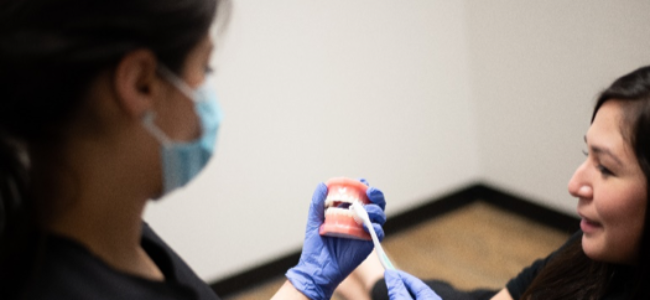Can Family History Doom You to a Future of Gum Disease or Other Oral Diseases?
Browse the Mayo Clinic’s online entry for almost any health condition or disease, and you’ll likely see “family history” listed among the risk factors.
Using the whole of human history as a case study, medical researchers have conclusively determined that genetics play an important role in whether someone is predisposed to developing certain serious health problems.
But is that true when it comes to gum disease, periodontal disease, and other oral diseases? Could it be that, no matter how much we floss, brush, and swish, some of us are genetically predestined for poor oral hygiene?
Let’s look at the latest in what we know.
Are Cavities Genetic?
According to the American Dental Association (ADA), cavities is a “complex disease” with multiple risk factors, both genetic and environmental in nature.
So yes, dental genetics do play a role.
While the science in this area is relatively young and still developing, research has suggested that some people’s teeth may be more likely to develop cavities than others based on the genes they inherit.
Researchers emphasize, however, that there probably isn’t a single gene that causes cavities. Rather, it is likely that the risk of cavities increases with certain “gene-environment interactions.”
Is Gum Disease Genetic?
Your DNA may play a role in whether you get gum disease or periodontal disease, too.
“Research has indicated that some people may be genetically susceptible to gum disease,” notes the American Academy of Periodontology (AAP).
“Despite aggressive oral care habits, these people may be more likely to develop periodontal disease. Identifying these people with a genetic test before they even show signs of the disease and getting them into early intervention treatment may help them keep their teeth for a lifetime.”
If Oral Conditions Are Genetic, Why Can’t We Predict Them with a DNA Test?
The AAP is right. If we could easily identify people who are genetically at risk for oral health issues like gum disease, we could save countless people’s teeth and save the dental patients — and the dental care industry at large — untold dollars.
We could also put people’s minds at ease early on. The idea that some people could develop periodontal disease “despite aggressive oral care habits” is deeply unsettling. These people may benefit from more frequent dental examination, as well as advanced treatments and therapies.
Unfortunately, genetic tests aren’t always as easy as a 23andMe mail-in. We are still learning about the complex ways that one’s dental genetic makeup might trigger the development of disease.
Notes the ADA, “a predictive test for cavities or for periodontal disease does not currently exist” because “both of these are complex diseases with multiple gene and environmental risk factors.”
Moreover, “no gene to date has been identified that has as large an impact on periodontal disease as do environmental influences, such as smoking or diabetes.”
Still, work on just such a test is underway. Scientists envision a future where many of the world’s most damaging and pervasive health conditions — including cavities and gum disease — are identifiable early, even before they begin to develop, with the studying of genetic dental disorders gum disease genetics.
Can You Inherit Oral Cancer?
A 2007 study found that, at least among Indian men, certain genes made tobacco users more likely to develop oral cancer (compared to tobacco users in the same population who didn’t have those genes).
Those findings suggested that, while oral cancer isn’t “inheritable” per se, a predisposition for developing oral cancer in the presence of certain environmental factors (chewing tobacco, for example) is inheritable.
This echoes the ADA’s suspicion that oral disease is determined by a concurrence of genetic and environmental factors.
Incidentally, oral cancer is on the rise in the United States. Many dentist offices now include oral cancer screenings as part of a routine dental exam, often at very low cost or even for free.
While oral cancer screenings cannot predict oral cancer in the way that a DNA test might someday, they often allow dentists to spot oral cancer before symptoms become apparent. That’s important because oral cancer is highly treatable in its earliest stages but can prove deadly if discovered too late.
Other Risk Factors Matter More
While the discussion about oral conditions caused by genetics is all very fascinating — and while it may someday transform dental health care as we know it — we want to emphasize that the choices you make are more important than the genes you might have.
The most important risk factors for developing gum disease are:
- Poor oral hygiene
- High stress levels
- Clenching or grinding teeth
- Drinking tea, sodas, or other sugary products that damage enamel
- Poor nutrition
- Illegal drug use
- Systemic diseases (e.g. heart disease, diabetes, etc.)
- Weakened immune systems & certain autoimmune conditions
- Use of certain prescription medications
- Advancing age
Whatever your DNA might look like under a microscope, the power is ultimately in your hands. See your dentist regularly, brush and floss like you’re supposed to, and take care of any oral health problems before they get worse.
Schedule a Free Consultation with a Dentist In Your Area
Ideal Dental offers a variety of services for any of your dental needs! Click here to learn more about our dental services.

